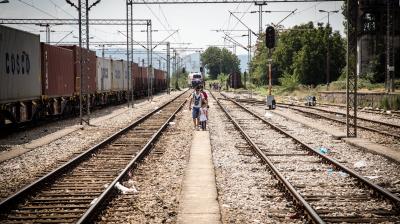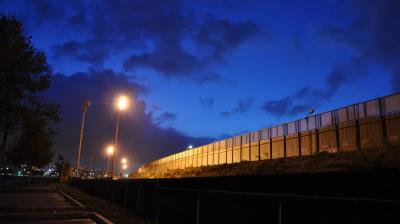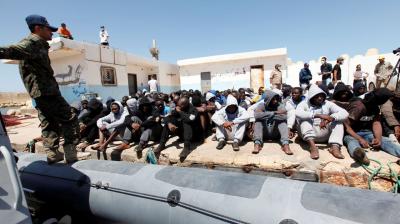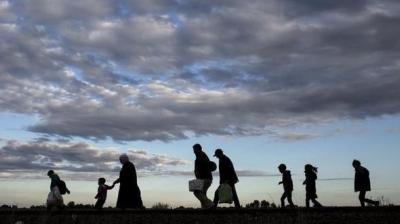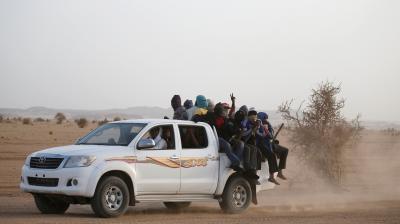
When states in the Sahel sign up to EU-designed ‘counter-migration’ border externalisation policies, they will have to define migration/smuggling as a criminal offence and organise repression. The consequences will be serious, given the perceptions of migration across West Africa, the value of migration for Niger as a transit country and the poor records of the Sahelian states in dealing with such transit flows.
Experts in the Sahel are sceptical the states will be capable of building the capacities needed for such a policy to ‘work’ – in the sense of stemming or containing migration flows – across the immensities of the Sahara Desert. At the same time the value of the migrant as a commodity will increase, meaning that investments and risk-taking will also increase. This will lead to greater pressures on state organisations, initiatives to open up new routes and, in Niger in particular, a reconfiguration of power relations in the northern desert with consequences and implications that are hard to predict.
In this note, I briefly examine the different points of apprehension stressed above and draw a conclusion on the Sahelian perception of the policy of border externalisation.
Migration: a deeply naturally rooted regional phenomenon
The factor to consider first is that West Africans do not see migration as a change of life and a permanent resettlement elsewhere – except when, like the Gambians, they are fleeing both poverty and a brutal despot. Migration is mostly practised within the region and to destinations within the African continent, and migrants are generally expected to return home once they have accumulated sufficient capital to become important people in their village, town or region. Communities and families being the primary fact of life for most West Africans, they very rarely conceptualise migration as moving permanently elsewhere to build a new life.
This idea of migration is held in the region not only by migrants, but also by people working around migration flows, to exploit and/or regulate them. There is, therefore, little to no interest in stopping migration in the region, especially since West Africa is the most open of the continent’s regional communities, with freedom to come and go established decades ago within the frameworks of the Economic Community of West African States (ECOWAS) and the West African Economic and Monetary Union (WAEMU).
As a result, a policy of border externalisation will not be accommodated in the region. It will not be approved by the culture and it will be seen as interfering with West African regional integration efforts. Given these negative odds, it will need aggressive means and practices of enforcement against both migrants and the lucrative networks of transport and assistance that have developed around an ‘activity’ which local populations view as perfectly natural.
Whenever state repression is imposed without the support of civil society, the repressed activity becomes more, not less, valuable. Repression will drive it underground, where the stakes will be higher, since people will have to fight the state to carry on. The apprehension here is that while state repression can reduce migrant flows by a significant margin, it will also increase violence at borders and on some migrant routes.
New routes will open beyond state control
A second apprehension is that new routes will be opened to dodge state control. This can happen in any number of ways with one potential consequence being that migrant routes will become less concentrated – as in the single large flow that now courses from southern Niger to Agadez and onwards. In such a case, more Nigerien communities will become involved in the migrant industry, rendering law enforcement more difficult from both a practical and political point of view.
The existing migrant industry is a stabilising factor
A third apprehension is the impact on Northern Niger, a region whose residents consider the migrant industry as the new stabilising factor after the demise of tourism. Border externalisation will imply a full dismantling of the industry in the region, with inevitable destabilising effects. Given the geopolitical environment – with terror groups still operating in neighbouring Mali and Libya and Tuareg irredentism still a serious issue in the region of Kidal, which borders Niger – the policy appears extremely risky, seen from the Sahel.
The context of a wider Saharan informal trade economy
Finally it should be borne in mind that migration in Niger is only part of a wider Saharan informal trade economy characterised by large-scale circulation/smuggling of consumer goods and illicit commodities, and meshing with state organisations at key junctures. This means that the policy of border externalisation will require serious reforms in how the state works in Northern Niger to be worth the cost. Such a proposition should be approached with the knowledge that Niger’s identity as a transit country dates back to the 1980s and derives from an ancient, pre-colonial pedigree as a ‘Saharan crossroads’.
To sum up, the policy will be unpopular for cultural and economic reasons; it will gravely interfere with West African regional integration; it will increase risks and violence associated with migration; it will have destabilising effects on Northern Niger; and it will need overdue but onerous structural reforms related to state organisations. As a result, border externalisation as a solution to the migrant issue is bound to be viewed in broadly negative terms in the region.
Rahmane Idrissa is the founder of Think Tank EPGA in Niger.



